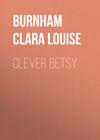Kitabı oku: «The Key Note», sayfa 4
"Oh, continue. I did not mean to interrupt you, for now you are coming to the climax."
"Nothing very wonderful, Miss Wilbur, but I found I had that to give that people were willing to pay for, and I began going about in country places giving recitals, mixing humorous recitations in with the groups of songs, playing my own accompaniments and sometimes having to shovel a path through the snow to the town hall before my audience could come in. I wonder if Caruso ever had to shovel snow away from the Metropolitan Opera House before his friends could get in to hear him! After that I worked my way through two years at college, studying with a good voice teacher. Then came the war. I got through with little more than a scratch and was in one of the first regiments to be sent home after the armistice was signed. The lady who first discovered my voice had influential musical friends in New York. She sent me to them, and, to make a long story a little shorter, last winter I was under an excellent management, obtained a church position, and have sung at a good many recitals. The coming winter looks hopeful." Philip put his hand on his heart and bowed. "Thanking you for your kind attention – here we are at Grammy's."
CHAPTER V
A FIRELIGHT INTERVIEW
Their path had led away from the main road across a field toward a buff-colored house set on a rise of ground like a billow in a green sea. Where the hill descended beyond, there grew a flourishing apple orchard.
"Since my grandfather's death, the little farm is overgrown," said Philip. "My grandmother gets a neighbor to cut the hay and milk her cow, and so leaves the cares of the world behind her."
A climbing rosebush nearly covered one side of the cottage, and old-fashioned perennials clung about its base. Nothing was yet in bloom; but soon the daisies in the field would lie in white drifts and the wild roses, large and of a deep pink, would soften the ledges of rock cropping out everywhere in the sweet-smelling fields.
Philip opened the door and ushered his companion into a small hallway covered with oilcloth, then into a sunny living-room, shining clean, with a floor varnished in yellow and strewn with rag rugs. An old lady, seated in one of the comfortable rocking-chairs, rose to meet them. Her face, the visitor thought, was one of the sweetest she had ever seen.
"What a pretty girl she must have been!" she reflected.
Around her neck the old lady wore a string of gold beads, and the thick gray hair growing becomingly around her low forehead was carried back and confined in a black net. The simple charm of her welcome to the young girl was the perfection of good manners and her voice was low and pleasant.
"I'm glad you've brought my boy back, Miss Wilbur, I've been missing him."
"That's right, Grammy. Give me a good character," said Philip hugging her and kissing her cheek. "I must have waffles, though. I'm spoiled."
Here a woman appeared at the door of the passageway that led to the kitchen. She was very wrinkled and care-worn in appearance, yet sprightly in her movements and manner. Many of her teeth were missing and her thin hair was strained back out of the way. She wore a large checked apron over her calico dress.
"Hello, there, Aunt Maria," said Philip. "This is Miss Wilbur, one of the guests at Miss Burridge's."
"Happy to meet you," said Aunt Maria, but casually, in the manner of one who has but slight time for trivial things like social amenities. Then she fixed Philip with a severe stare. "Is this the day you was expectin' the New York man?"
"It is, Aunt Maria. Don't tell me you weren't sure and haven't plenty on hand for two man-sized appetites."
"Well, I thought 'twas. I guess I can feed you." Aunt Maria's severity lapsed in a semi-toothless smile. "How's Priscilla Burridge gettin' along?"
"Famously," replied Philip. "She's given me waffles every morning."
"H'm!" grunted Aunt Maria. "I guess I can cook anything Priscilla Burridge can, give me the ingregiencies."
"The principal ingredient is a waffle iron. I'll send for one for you."
Diana had meanwhile been placed in a seat near her hostess, where she faced the line of cheerful red geraniums on the window-sill.
"Your first visit to the island, Miss Wilbur?" asked the old lady.
"Yes, Mrs. Dorking; but not the last, I assure you."
"You like it, then?"
"I think it is a fairy-tale place."
"Miss Wilbur has been accustomed to a summer home where the hand of man has been very busy and the foot of man has trodden out nearly all of Nature's earmarks. She finds she likes the raw material better," said Philip, leaning against the mantelpiece where odd shells and quaint China objects, half-dog, half-dragon, stood as memorials to Captain Steve Dorking's cruises. The swords of two swordfishes, elaborately carved, leaned near him.
"The island's filling up," said the old lady. "A lot of the summer people came yesterday and from now on they'll flock in."
"Are you glad to see them come?" asked Diana.
"Yes," returned Mrs. Dorking, a rising inflection in her kindly voice. "They're most of them good friends of mine."
"I should say she is glad," remarked Philip. "She sits here in state and receives them all, don't you, Grammy?"
"I don't know as there's much state about it." The old lady smiled, and leaned toward Diana. "Miss Wilbur, I guess you've found out already that Philip is the foolishest boy that ever lived. We can't afford to mind his talk, can we?"
"But his singing, Mrs. Dorking," Diana looked up at Philip's tow head towering toward the low ceiling. "It doesn't greatly matter how he talks when he can sing as he does."
"Yes," returned the old lady, again with the moderate rising inflection. "I will say Philip's got a real pretty voice."
"And there is a piano!" said Diana, wistfully looking across the room at the ancient square instrument.
"That is a very polite name for it," remarked Philip.
"Oh, Mr. Barrison, could you, won't you, sing some song of the sea?" The girl clasped her hands in prospect. "I'm your guest, you know. It is not quite possible to refuse."
"Of the sea, eh?" Philip looked at his watch. "I think we have time before the boat comes. I'll make a bargain with you. I'll sing you a song if you will go down to the boat with me and meet my accompanist."
"Oh, is your accompanist coming?"
"Even so. But when is an accompanist not an accompanist? Answer: When he comes to the sea to fish. I've lured you far from home and dinner, so you come to the boat with me and I'll send you home in Bill Lindsay's chariot."
"Very well, but – please sing!"
"Oh, yes. A song of the sea is the order, I understand. Meanwhile, I accompany myself on the harp."
Philip moved over to the piano. It was placed so he could look over the case at his listeners. He ran his fingers over the yellow keys which gave out a thin, tinkling sound, and then plunged into song:
"The owl and the pussy cat went to sea
In a beautiful pea-green boat,
They took some honey and plenty of money
Wrapped up in a five-pound note.
The owl looked up to the stars above
And sang to a small guitar,
'Oh, lovely Pussy, Oh, Pussy, my love,
What a beautiful Pussy you are!'"
* * * * * *
Philip had never seen Diana look as lovely as when he finished and rose. There was no doubt now that she could laugh. His enunciation was perfect, and the alternations of sentimentality and fire with which he had delivered the nonsense made it thrilling in the little room where his velvet, vibrant tones at moments shook the shells on the mantelpiece, while they flowed around the listener's heart.
"That was delectable," laughed Diana, applauding, her eyes moist with excitement.
"Yes, ain't that a funny tune?" said Mrs. Dorking, looking with affectionate pride at her grandson as he emerged around the end of the piano.
"We have to be off, Grammy," he said, "or Barney will be lost in the shuffle."
Mrs. Dorking rose and urged Diana warmly to come again, and the girl promised that she would do so. When they were outside she spoke:
"Is your Aunt Maria your grandmother's sister?"
"Oh, no." Philip laughed. "She is a good village-aunt who helps in the home. She likes to look harassed and overworked, but she adores having charge of the house since my grandfather's death, and is devoted to Grammy. Barney Kelly will have to look out for himself, for Aunt Maria is an excellent cook and Kelly would be inclined to umbumpum if he didn't mortify the flesh. He's a Canuck and one of the best fellows going."
"And are those summer cottages?" asked Diana, her glance sweeping over an adjacent field. It was high ground sloping gradually to the sea, and was dotted with shingled cottages of varying shapes and sizes.
"Yes, that was my grandfather's pasture, and many a time I've gone there for the cows. But one woman after another besieged him for the ground, and he sold it off."
"If I had some land here, I would prefer to be more isolated," said Diana.
"Then you would better speak quick," said Philip. "The country seems to have its eye on Casco Bay. There comes the boat around the point now."
They hastened their pace and went down a flight of steps which led to the wharf. It was a busy spot full of people and trunks and barrels and boxes. Everybody greeted Philip and looked at Diana, and Philip presently descried the peering face of a man on the upper deck of the approaching boat. He was dressed in a double-breasted suit of a fine check and carried a stick which, presently descrying Philip's blond head, he shook in his direction and, picking up his bag, turned and went downstairs at the call: "Land from the lower deck." The newcomer was evidently alive all over and impatient of the delay to the moment when he could run up the gangplank. From time to time he shook his stick toward Philip, and gazed at the girl beside him. At last he gained the wharf, set down his bag and shook hands with Philip. Being presented to Miss Wilbur, he took off his hat and disclosed tight curly hair, close-clipped and groomed to the last degree of shine.
"Perfectly heavenly sail we've had down, or up, I don't know which it is," he exclaimed with a burr to his r's which increased the enthusiastic effect of his speech.
"I told you it was paradise," said Philip.
"And you proved it by bringing one o' the angels with you," returned Kelly, smiling at Diana.
She regarded him with her usual serenity. "I see that, like Mr. Barrison, you enjoy using hyperbole," she said.
"Really," returned Kelly curiously. "Am I that clever? Yes, old chap, here's my check. I have a box somewhere around these diggings."
"Now, wait a minute," said Philip. "I lured Miss Wilbur down here with me to meet you and now I must return her honorably to her dinner. Oh, Bill."
He pushed through the crowd to where the motor stood, the center of new arrivals. "Save one seat, Bill," he said. "Lady for Miss Burridge's."
There was some good-natured crowding, but there being two more passengers for Miss Burridge's, Diana was squeezed in, and Barney Kelly, his hat waving from his hand, quite eclipsed Philip in the attentiveness with which he bade her godspeed.
"Who's the Vere de Vere?" he asked when Bill Lindsay had whipped up his engine and moved off.
"A young lady from Philadelphia," returned Philip, a trifle stiffly.
"Aren't touchy about her, are you? Great Scott, boy, you haven't had time! Now, if it had been me, a day's enough. Fire and tow. Fire and tow. You'd supply the tow all right, old cotton-top, but I'll be hanged if I can see where she'd provide the spark. Don't you touch that bag, Barrison," for Philip had caught up his guest's suitcase. "Like a condemned fool, I put the scores in it instead of in the box. There must be some horse here that wouldn't take it quite so much to heart as I do."
"All right," said Philip. "It can come up with your trunk. Here, Matt," – for the too-popular carpenter was expressman as well, – "this is my friend Mr. Kelly. He aids and abets me when I shriek at the public and he's loaded up his bag with music. Bring it along with his trunk, will you? Here's the check. Mr. Blake, Barney."
The newcomer shook hands with the long-legged, long-armed thin man in his shirtsleeves, and Matt Blake appraised the stranger out of his blue, grave, shrewd island eyes.
"Just crazy about this place already, Mr. Blake, just crazy about it," the newcomer assured him, and Matt Blake nodded his old straw hat and listed the volatile Barney as "another nut."
It was about a week afterward that opportunity found Mrs. Lowell and Nicholas Gayne together one evening in the living-room of the Inn. It was cool and a wood fire blazed on the hearth, but the night was still inviting and had lured the others to put on wraps and stay out of doors.
When Mrs. Lowell came in, Gayne was in a wicker rocker before the fire, his legs stretched out, and, as the lady entered, he drew them in and rose.
"You are choosing the better part, too, are you?" he said, not doubting that his presence was proving as much of an attraction as the fire. Two other men had arrived, teachers from a boys' school, Evans and Pratt by name, and it was probable that Miss Emerson was figuratively sitting at the feet of one of them and asking questions about the stars. At all events, she was out of doors. Nicholas Gayne had looked up apprehensively at Mrs. Lowell's entrance, fearing the worst; and his relief caused him to be quite effusive in his welcome of the lady and the manner in which he brought forward a chair for her.
"Have you had a good day?" she asked as she seated herself and he fell back into his rocker.
"It has been a nice day, yes."
"I meant as to your work."
"My work?"
"Yes, your sketching."
"Oh. Oh, yes, of course. Fine. Very clear. Very good views."
"I suppose you elaborate these in your studio in town."
"What? Oh, well – it isn't much of a studio at that. It is more or less on the side – my art work. I – I make no pretensions. Everybody's got to have a fad to be truly happy, haven't they? I like to scrawl and daub a little."
"You are modest. I've been expecting you would show us some of these views. This place is surely one to tempt the artist. Doubtless you have seen some of Frederic Waugh's canvases done from the sketches he made here."
"Eh? Who? Oh, yes, of course," replied Gayne lamely. "Strange that that Miss Wilbur should ever have struck this island. I understand she's the daughter of the steel man. I suppose she's slumming." Gayne laughed.
Mrs. Lowell could not force a responsive smile. "She is a very charming girl." After a pause: "I've had several talks with your nephew, Mr. Gayne."
Her companion shook off the ash from his cigar into the fire.
"You did the talking, I'm sure," he responded dryly, and his manner made her determined to be doubly careful how she proceeded.
"This place should build him up," she said. "He seems a rather fragile boy."
"Yes. He grew too fast; makes him rather weedy. Too bad he didn't keep pace mentally. He's weedy there, too."
"I should think it might be well to have him tutored for an hour a day while he is here." Mrs. Lowell tried to speak carelessly as she kept her eyes on the blaze.
"How could you find a tutor in a place like this?" was the response. "Surely Mr. Pratt and Mr. Evans – I understand they are teachers – wouldn't take kindly to the task of trying to find Bert's brains while they're on their vacation."
"No, I was thinking of a very simple plan. Miss Burridge's niece, Veronica, would perhaps be glad to work with the boy an hour a day. She has a good common education."
"Nothing doing, Mrs. Lowell." Nicholas Gayne sat up in his chair and evidently put a constraint upon himself. "You come upon this problem as a new one and you think you understand it, but you don't. You think it's not hopeless, but it is. The boy began by being backward and he's got worse and worse all his life. He couldn't keep up with any class in school and I finally took him out. Oh, I've done my best, believe me. I had a tutor come to the house for a while, but I was finally convinced that Bert hadn't the equipment to think with. Of course, there's schools for deficient children, but have you got any idea what they cost? I'm a poor man. I couldn't pay what they tax you. Bert'll end up in an institution, that's the place for him; but I'm soft-hearted. I'll keep him with me as long as I can. The doctors all warn you that it isn't safe. That kind of weak intellect is liable to take a dangerous turn any time. There's thousands of cases where relations have insisted on keeping morons like Bert near them too long. I only hope I shan't. Just take my advice, Mrs. Lowell, and don't have much to say to the boy. He gets along best when he's left alone. It doesn't do to try to wake up that kind of a brain. There's no normal balance there, and any sharpening is liable to make it take a wrong shoot. I've been on this problem five years, and, believe me, I know something about it."
The speaker's voice grew more and more blustering as he proceeded, and Mrs. Lowell could feel her limbs trembling with the intensity of her own feeling and the necessity for concealing her thoughts from him.
"He is your brother's child, I understand," she said quietly, when Gayne had made his last emphatic gesture and sunk back in his chair, red in the face.
"Yes, he is. These things are awful in a family."
"Awful," echoed Mrs. Lowell.
The next morning, after breakfast, she went to Diana's room and knocked. The girl welcomed her in. She was shaking a blanket.
"I do enjoy making my bed so much," she said. "I learned how at school."
"Then let me watch you do it while I talk to you." The visitor sat down, and Diana went on in the most earnest manner to tuck in sheets and pat and smooth pillows as if her life depended on the squareness of corners.
"I had a talk with Mr. Gayne last night."
"I observed you through the window. I felt a certainty that you were not happy."
"It was an ordeal, but I verified my suspicions – my worst suspicions. The man is planning to get his nephew out of the way, to have him shut up."
Diana left the flap of a pillow-case to its fate and faced her caller.
"To incarcerate him!"
"Yes. In an asylum. Some state institution. He has been training the boy toward that end. You have seen it. I have seen it. What is his motive? That is the question."
"Don't you think it may be merely to rid himself of a burden which hampers his life?"
"But his own flesh and blood!" exclaimed Mrs. Lowell. "Does any one live who would go to such lengths without a greater reason? Miss Wilbur, let us see what the man does in these daily rambles of his. I am convinced that his artistic pose is a cloak. He didn't even know who Frederic Waugh was."
"Oh, but to accompany the creature!" protested Diana.
"No, of course, we shouldn't find out anything by accompanying him except that he cannot sketch, and I'm sure of that already. But let us go to walk this morning, and why not visit the haunted farm?"
"No reason except that he knows we are aware that he haunts the place, which, if I were a ghost, would make it immune from my visits."
"Yes, but he cannot expect us to remember or care where he goes. I feel I must be doing something about this, no matter how slight, and – and don't let Miss Emerson join us as we go out."
"Perish the thought!" said Diana devoutly.
"God will not let this outrage take place," said Mrs. Lowell, her thought leaping back from Miss Emerson to the neglected boy. "I wish I could ask Bertie to go with us, but I feel I must be very careful not to let his uncle suspect the depth of my interest."
"Miss Emerson is very timorous about horned cattle," said Diana. "We can remember that. Sunburn, too. She has a great dread of becoming tanned."
With these encouraging considerations the two amateur detectives stole downstairs. Mrs. Lowell went to the kitchen where Veronica was as usual at this hour drying the breakfast dishes.
"Miss Veronica," she said, "would you do a little missionary work this morning?"
"I'd like to hear about it first," was the cautious reply.
"Veronica is ready for every good word and work, Mrs. Lowell," put in Miss Burridge, "but she's a busy child."
"I know that, but I wondered if she could give half an hour to playing a game of croquet with Bert Gayne."
"Oh, land!" exclaimed the girl, aghast. "He won't want to."
"That's the point, Miss Veronica," – Mrs. Lowell looked with her loving, radiant gaze into the young girl's eyes. "We want to make him know that young people don't shrink from him. He knows that I don't. I want him to know that an attractive young girl like you doesn't either. You can see that his mind is sick. He has had great sorrow."
"Sure!" said Veronica. "It's sorrow enough to have that uncle of his."
"Ve-ronica!" exclaimed Miss Burridge with one of her warning looks at the back of Genevieve's head.
"You know now what I meant by calling it missionary work," said Mrs. Lowell. "Think about it if you have time. You will find the boy dull and distrustful. I have great hopes of you. Try to make him bright and trustful. I know it can't be done in a minute." The speaker again smiled confidentially into the girl's eyes.
Diana appeared in the entrance.
"Miss Emerson is in the hammock," she said softly. "Shall we take the back way?"
They slipped out the kitchen door and Veronica scrubbed a plate already dry.
"Mrs. Lowell is the sweetest, prettiest, most darling woman I ever saw," she stated.
"But nothin' like that Miss Diana," uttered Genevieve in, for her, a lowered voice. "She's so grand it scares me when she looks at me, and Matt Blake says her father owns the whole of Pennsylvania."
Veronica turned up an already aspiring nose and grunted disparagingly. It was hard to forgive Diana for being a goddess and not chewing gum.



